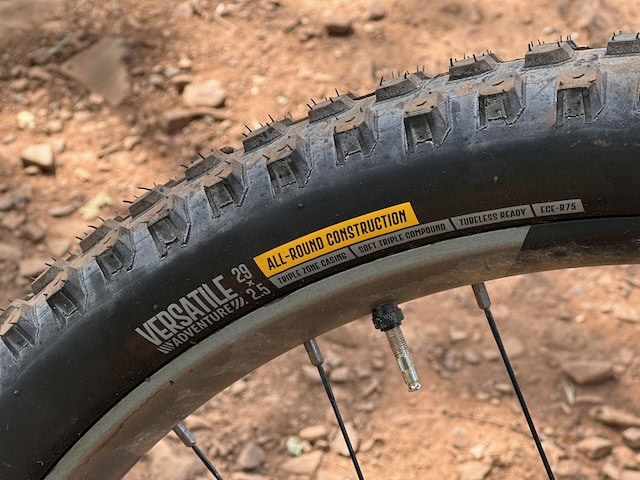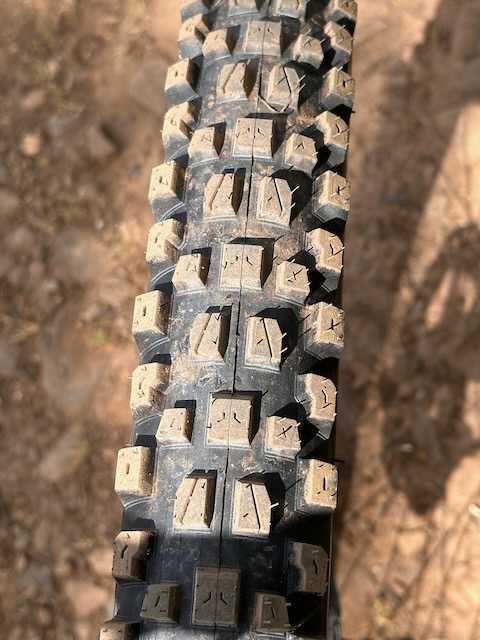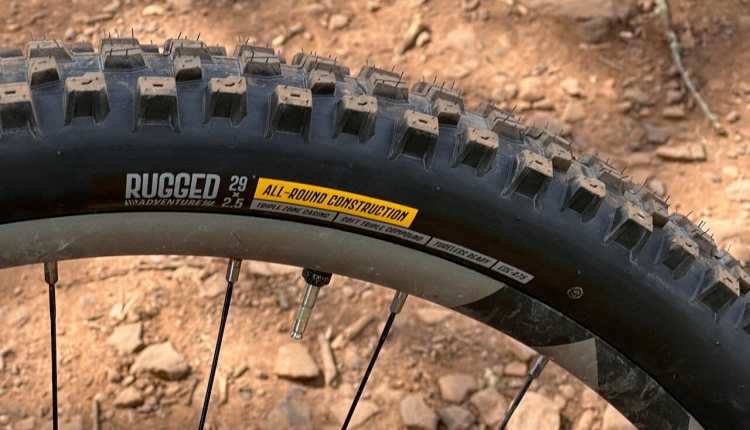I’ve been riding some mountain bike tires from a brand some folks might not have heard of previously. Delium is an Indonesian brand that has been making bike tires since 1970, but for most of their history, they’ve been an OEM supplier to other brands.
They are now making a push into the U.S. and I’ve been riding two of their mountain bike tires.

I’ve been riding the “Rugged” tire—yes, that’s it’s model name—in the front and the “Versatile”—you guessed it—in the rear. I’m going say the obvious part, if not the quiet part, out loud. These look like nothing so much as knock-offs of the Maxxis Minion front and rear. The designs aren’t exact copies, but anyone who has ridden the Minions will recognize elements of the tread pattern.
Before I get into the details, I’m cutting to the chase for why anyone would consider these tires: They carry a suggested retail of $49.99.
The Rugged and Versatile come in two casings. I’m riding the All-Round; they also offer a casing tagged Reinforced, which kicks the price up to a brain-tingling $59.99. The Rugged comes in three sizes: 27.5×2.5, 29×2.4 and 29×2.5. I’m riding the 29×2.5. The Versatile comes in two sizes, 27.5×2.5 and 29×2.5.
The tires use a 60a durometer for the rubber on the center knobs and 50a on the side knobs, same as Maxxis offers.

The worst thing I can report about these tires is that I was unable to seat them using a chambered pump. I had to go to the shop and ask them to use their compressor to seat the tires. Minions, in my experience, seat quite easily.
One thing I really appreciate about Delium is that for anyone who doesn’t want to spend a week triangulating all the different reviews of the myriad versions of the Minions to make a choice, with the Rugged and Versatile, there are only a handful of choices. It mostly comes down to whether you think you need the reinforced casing.
Okay, so that’s all the objective info, with a bit of observation. The real question is how they ride, right?
I’m going to be honest and say that there’s a trail in Annadel where there is a brief downhill that is defined by a series of slabby granite boulders that sit at skewed angles. It’s just the sort of terrain that mountain bike tires did not tend to perform well on back in the 1990s and early aughts.

The first time I hit them on the Deliums, I held my breath, wondering if the rubber compounds would truly prove to be as sticky as advertised. If the compounds weren’t, a fall seemed likely, if not inevitable, and a fall there would be high-consequence, with a broken bone or two being not just possible, but practically to be expected.
They rolled through as if I was on a tire costing twice as much. In the weeks since then, I’ve yet to find fault with them on anything other than the loosest dust, where every tire I have suffers.
Delium tires may be hard to find in retailers. As one friend put it to me, “Why would I want a half-price Minion when I don’t have any trouble selling Minions? People come in and ask for them by name.” And he has a point. However, from the consumer’s view, given how expensive the rest of our modern lives are—have you seen how much an iPhone costs these days?—one can understand a desire to save $50 when the opportunity presents. That’s a meal out with my sons.
Final thought: These tires are better than they have a right to be.


